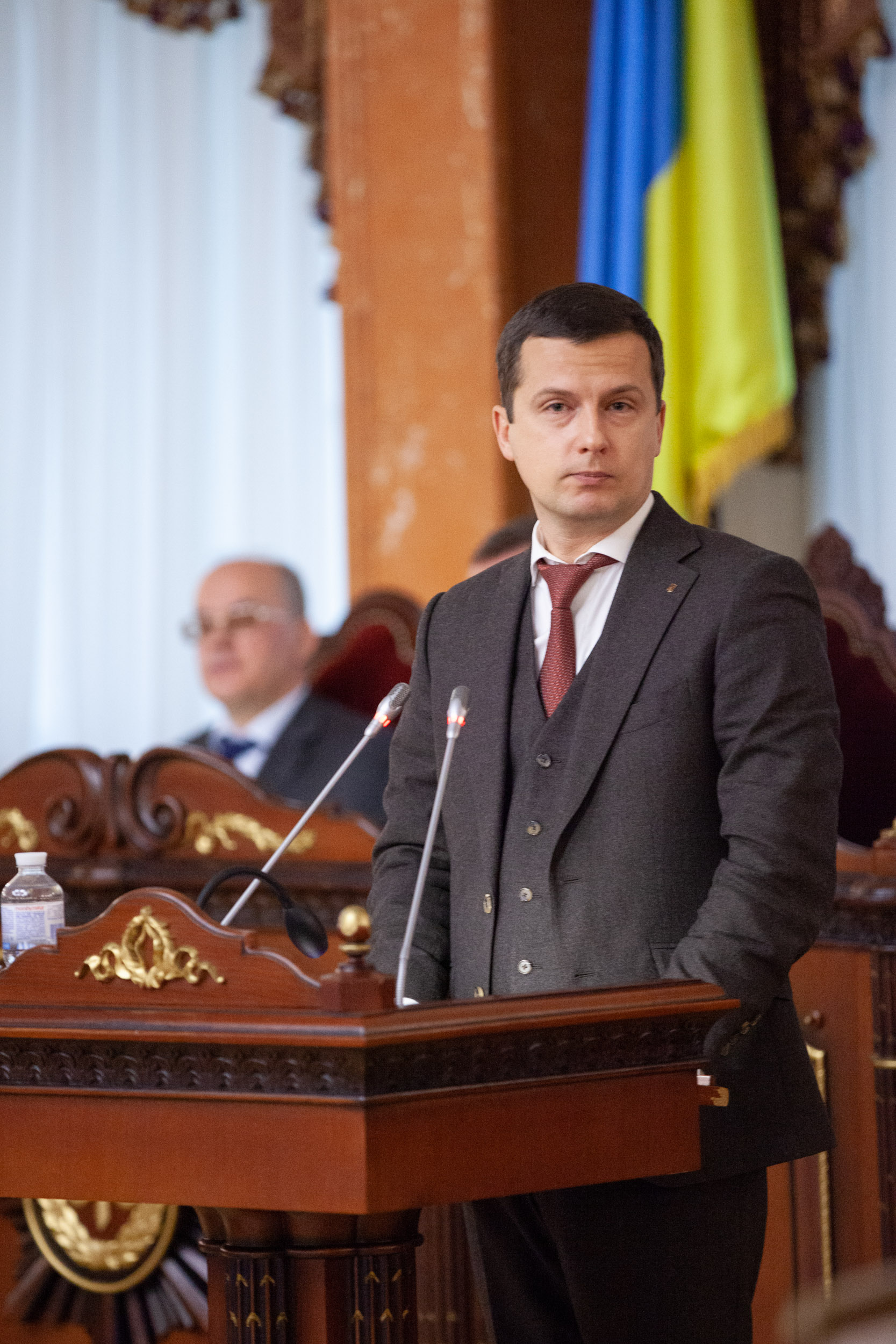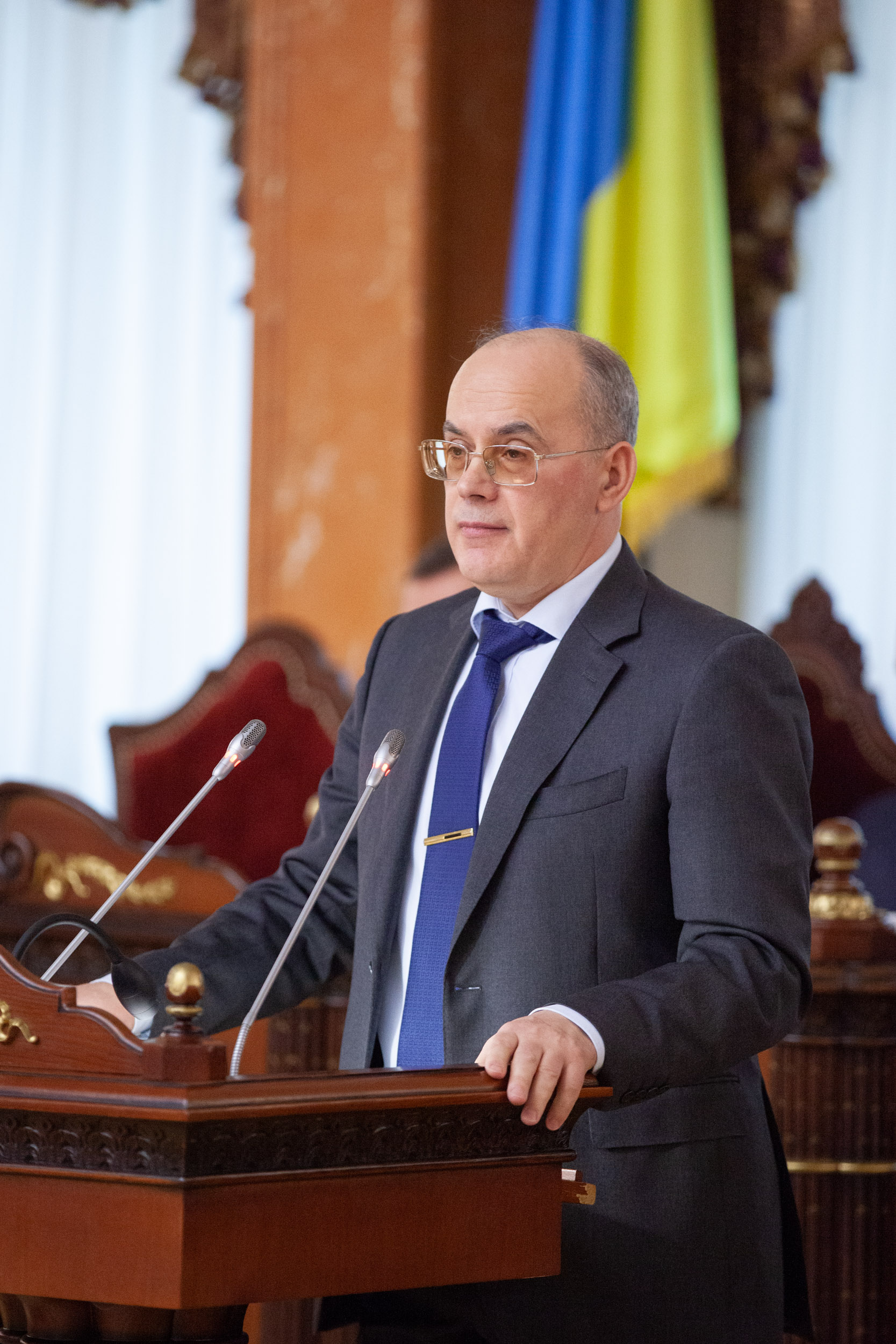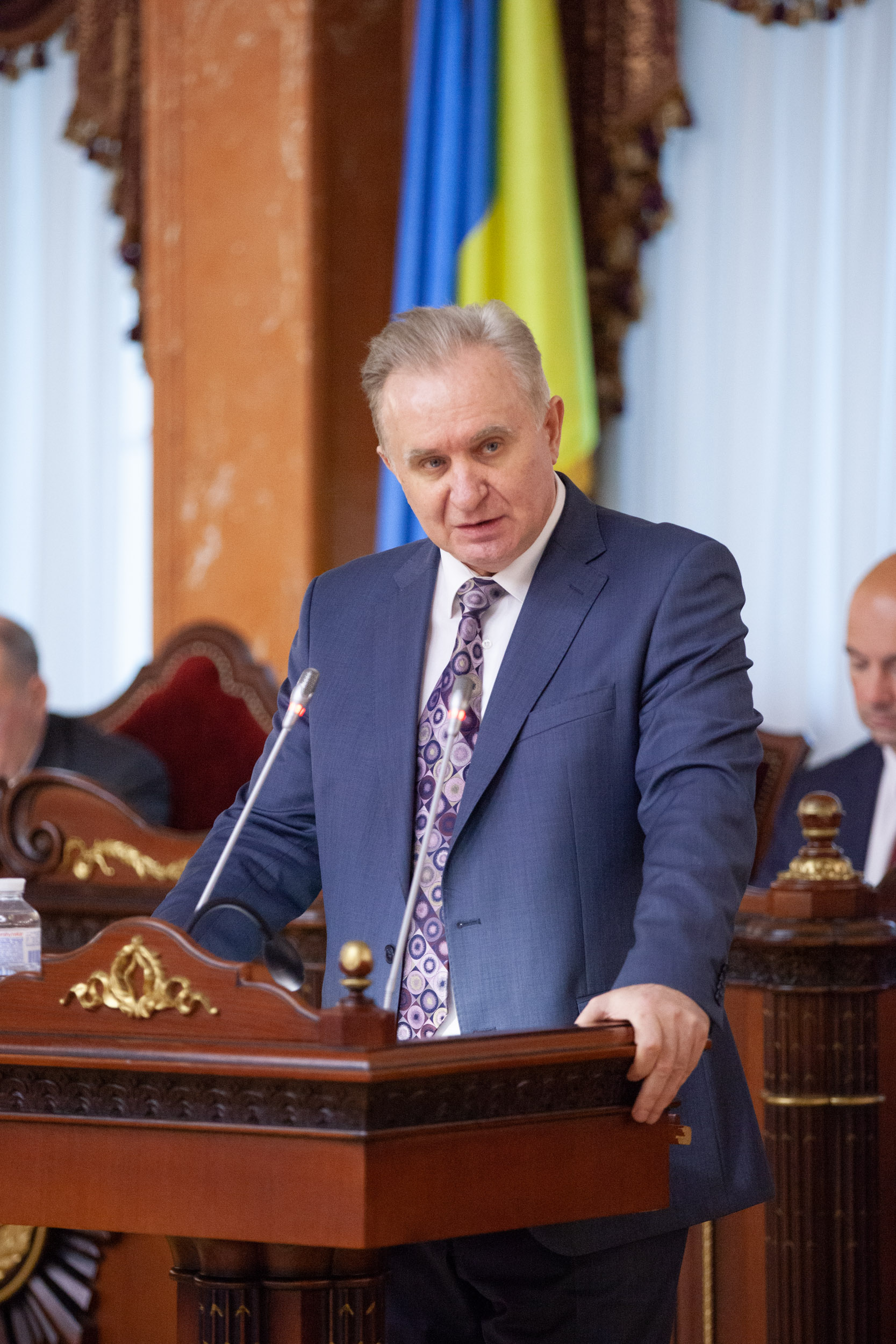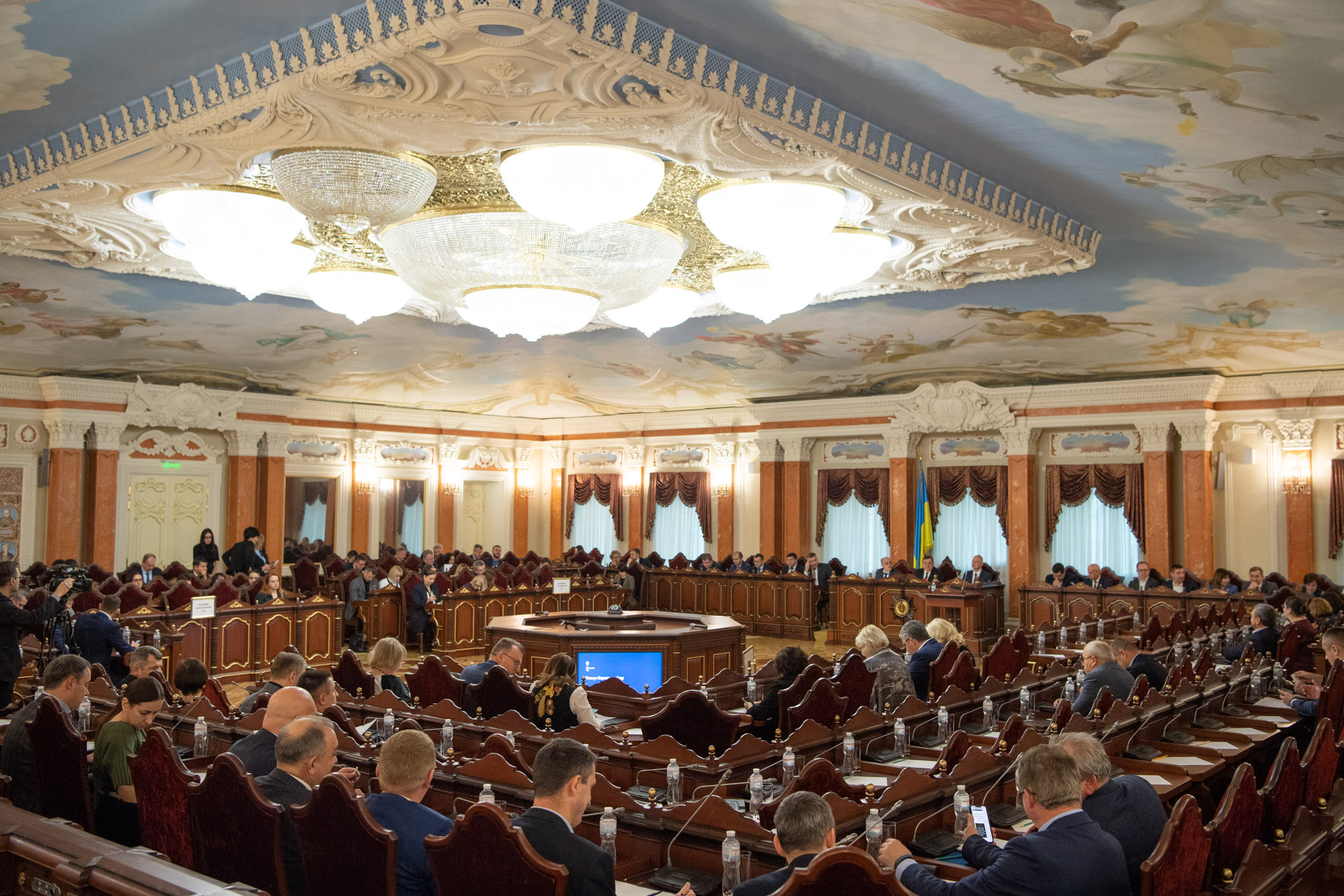Contact center of the Ukrainian Judiciary 044 207-35-46

Today, on 24 November 2023, during a regular session of the Plenum of the Supreme Court, the judges of the Supreme Court considered several issues related to the submission of constitutional petitions to the Constitutional Court of Ukraine on the conformity of certain legislative acts and the Decree of the President of Ukraine No. 715/2014 of 10 September 2014 "On Approval of the Regulation on the National Energy and Utilities Regulatory Commission" with the Constitution of Ukraine.
In particular, after hearing the report of the Supreme Court judge in the Administrative Cassation Court Albert Yezerov, the Plenum of the Supreme Court decided to apply to the Constitutional Court of Ukraine with a submission on the constitutionality of part 1 of Article 2 and para. 6 of Section II "Final and Transitional Provisions" of the Law of Ukraine No. 3668-VI dated 8 July 2011 "On Measures for Legislative Securing of the Reform of the Pension System" in terms of amendments to part 3 of Article 85 of the Law of Ukraine No. 1788-XII dated 5 November 1991 "On Pension Provision".
Law No. 3668-VI introduced a limitation of the maximum pension amount to ten times the subsistence minimum established for persons who have lost the capacity to work. Instead, Article 46 of the Constitution of Ukraine, which is consistent with part 1 of Article 64 of the Basic Law, does not provide for any restrictions on the constitutional right to social protection.

When considering this issue, the SC Plenum concluded that the legislative limitation of the maximum pension amount in terms of the provisions of Law No. 3668-VI can be considered as narrowing the content and scope of the right to social protection, including the right to pension provision, and leads to a violation of its crux. This is unacceptable in a social and legal state, as Ukraine is proclaimed to be. Therefore, in the opinion of the SC Plenum, there is an obvious contradiction between the provisions in question and Articles 46 and 64 of the Constitution of Ukraine.
The Plenum of the Supreme Court, upon the report of the Secretary of the Plenum of the Supreme Court, Dmytro Luspenyk, also decided that there were no grounds for filing a petition with the Constitutional Court of Ukraine on the constitutionality of para. 5 of Art. 7 of the Law of Ukraine No. 1082-IX "On the State Budget of Ukraine for 2021" of 15 December 2020 on the application of the minimum subsistence level for able-bodied persons to the calculation of the remuneration of judges from 1 January 2021.

The Secretary of the SC Plenum noted that the provisions of the Law on the State Budget of Ukraine for a certain period of time lose their force after the end of the budget period. Therefore, it is worth dismissing the appeal to the Constitutional Court of Ukraine, in particular, due to the repeal of Law No. 1082-IX.
Regarding the appeal to the Constitutional Court of Ukraine on the constitutionality of para. 7 of part 1 of Article 205 of the Electoral Code of Ukraine, which entrusts the Central Election Commission with the obligation to make a decision on the impossibility of holding elections to the relevant local self-government bodies in case it is established that it is impossible to ensure the preparation and holding of local elections in accordance with the provisions of this Code, the SC Plenum acknowledged that there were no reasonable grounds for such an appeal.
As noted by the speaker on this issue, Zhanna Melnyk-Tomenko, Secretary of the Judicial Chamber on Cases on Electoral Process, Referendum, and the Protection of Citizens’ Political Rights of the Administrative Cassation Court within the Supreme Court, preventing the electoral process from taking place in conditions of unhindered and free expression of the will of the citizens is precisely the legitimate aim that leads to the existence of paragraph 7, part 1, Article 205 of the Electoral Code of Ukraine and gives grounds for asserting the legitimacy of the restriction on the exercise of the right to vote provided for by it.

The Plenum of the Supreme Court also considered the issue of applying to the Constitutional Court of Ukraine with a submission on the compliance with Article 106 of the Constitution of Ukraine of the Decree of the President of Ukraine of 10 September 2014 No. 715/2014 "On Approval of the Regulation on the National Energy and Utilities Regulatory Commission" and the Rules of Natural Gas Supply, approved by Resolution of the NEURC of 30 September 2015 No. 2496.
The SC Plenum decided to reject this submission. This decision is motivated, inter alia, by the fact that the Constitutional Court of Ukraine has already expressed its legal position on the constitutionality of Decree No. 715/2014 and concluded that the constitutional proceedings should be closed due to the invalidation of the said act (Resolution of the Grand Chamber of the Constitutional Court of Ukraine No. 7-UP/2018 dated 19 September 2018).
With regard to the Natural Gas Supply Rules approved by NEURC Resolution No. 2496 of 30 September 2015, the SC Plenum noted that legal acts adopted by the NEURC are not subject to review of their constitutionality by the Constitutional Court of Ukraine. Therefore, a corresponding appeal to the Constitutional Court of Ukraine is inappropriate.

In addition, the Plenum of the Supreme Court, having considered the proposal of the President of the Supreme Court Stanislav Kravchenko and the report of the Chief of Staff of the Supreme Court Viktor Kapustynskyi, decided to amend the structure and personnel list of the Staff of the Supreme Court, the new version of which will enter into force on 1 January 2024. "The proposed changes will take place within the available resources and will improve the functioning of all processes in the Supreme Court," the Chief of Staff of the Supreme Court emphasised.
